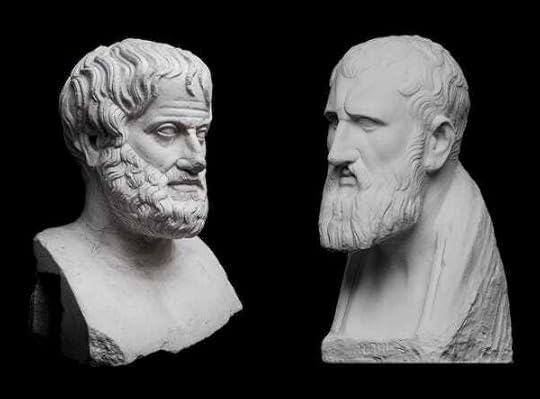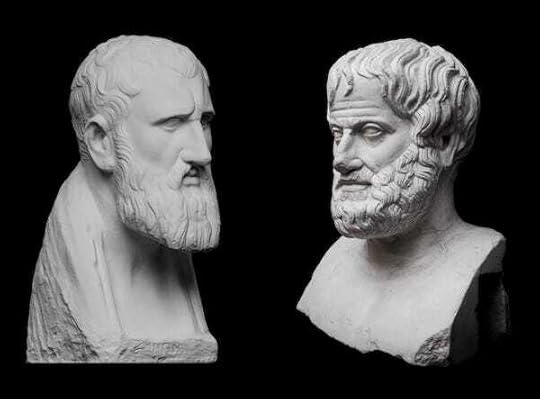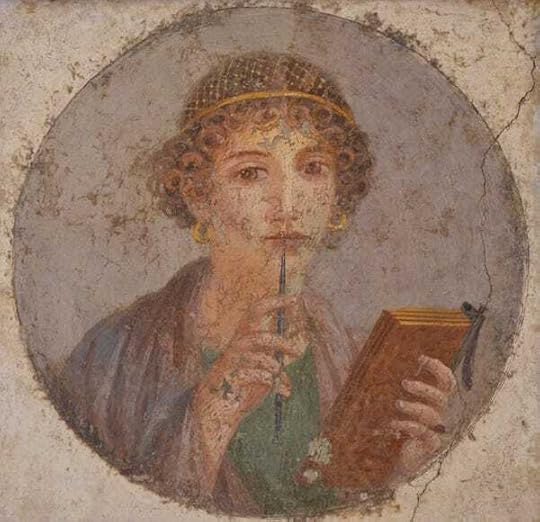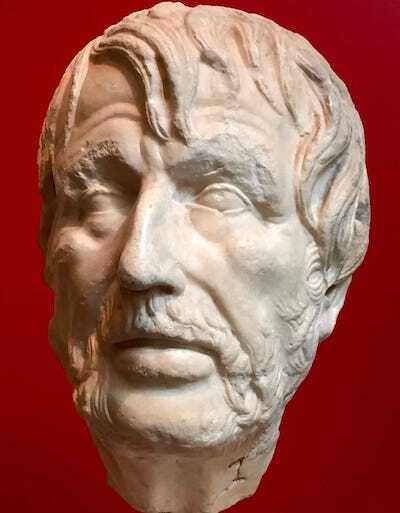Massimo Pigliucci's Blog, page 21
January 17, 2024
Video chat: Robin Reames on the importance of rhetoric

Welcome to the fifth of an occasional series of video chats with authors and translators who have written about the philosophy, culture, and history of the Greco-Roman tradition.
In this episode I talk to Robin Reames, an Associate Professor of English at the University of Illinois-Chicago. She works in the history of ideas, particularly the ideas that compose the field of rhetorical theory. Her research is guided by an interest in the visceral and primordial power of human speech, for which anci...
January 15, 2024
Epictetus and the chamber pot
“In order to determine what is and isn’t reasonable, we not only take account of the values of external things, but each of us also takes his role into consideration.
For one person it’s reasonable to fetch someone else’s chamber pot, because he’s focused on the fact that, if he doesn’t do it, he’ll be flogged and denied food, while, if he does, nothing unpleasant or painful will happen to him.
But another person not only considers it unbearable to do that but can’t stand even the idea of someone ...
January 12, 2024
Aristotle vs the Stoics: part II, ethics
 Aristotle (left) and Zeno of Citium (right).
Aristotle (left) and Zeno of Citium (right).Did the Stoics come up with an innovative, powerful philosophy of life? Or did they just take Aristotle’s stuff, changed the language here and there, and called it a day? The possibility has often been raised, all the way back to Cicero’s On the Ends of Good and Evil, that Stoicism may differ more in wording than in substance from its Aristotelian counterpart. Is that true?
I have explored the issue at a recent workshop in practical philosophy that I ha...
January 10, 2024
E-book: A Short Guide to the Inner Citadel

Dear Reader,
Here is the fifth installment of my ongoing series of free e-books based on essays that have appeared either here at Figs in Winter or at one of my previous blogs.
This new collection presents an in-depth yet accessible commentary on one of the classics of modern Stoicism: Pierre Hadot’s The Inner Citadel, first published in English in 1998.
Hadot’s book is ostensively about Marcus Aurelius, the emperor-philosopher, but in fact about half of it concerns the philosophy of Epictetus, the...
January 8, 2024
Plato on the need for expertise
“[Lysimachus] ‘I am asking you, Socrates, because it seems as if our council needs someone to act as umpire.’
[Socrates] ‘What, Lysimachus? Do you intend to follow whatever course the majority of us recommends?’
[Lysimachus] ‘Yes, what alternative is there, Socrates?’
[Socrates] ‘Imagine there was some discussion about the kind of athletic training your son should practice: would you be influenced by the majority of us, or by the man who happened to have trained and exercised under a good coach. … ...
January 5, 2024
Aristotle vs the Stoics: part I, metaphysics and logic
 Zeno of Citium (left) and Aristotle (right).
Zeno of Citium (left) and Aristotle (right).
[Cato] “I admit that some parts [of Stoic teachings] are obscure, yet the Stoics do not affect an obscure style on purpose; the obscurity is inherent in the doctrines themselves.”
[Cicero] “How is it, then, that when the same doctrines are expounded by the Peripatetics, every word is intelligible?”
[Cato] “The same doctrines? Have I not said enough to show that the disagreement between the Stoics and Peripatetics is not a matter of words, but concerns th...
January 3, 2024
Suggested Readings
 Woman with wax tablets and stylus (so-called "Sappho"), Naples Archeological Museum
Woman with wax tablets and stylus (so-called "Sappho"), Naples Archeological MuseumWould a society of intellectuals be a better place? Hermann Hesse’s ‘The Glass Bead Game’ is probably his greatest novel, his deepest, most intriguing, most hackerish in spirit. It combines a theory of history and education with lessons in Zen, meditations on the enduring power of institutions, friendship, duty and excellence, forays into the psychology of genius, a description of life at a hacker paradise like th...
January 1, 2024
Cicero on the nature of the soul
“There are many who labor on the other side of the question, and condemn souls to death, as if they were criminals capitally convicted; nor have they any other reason to allege why the immortality of the soul appears to them to be incredible, except that they are not able to conceive what sort of thing the soul can be when disentangled from the body; just as if they could really form a correct idea as to what sort of thing it is, even when it is in the body; what its form, and size, and abode ar...
December 29, 2023
The story of Pseudo-Seneca
 Pseudo-Seneca at the National Roman Museum in Rome, photo by the Author.
Pseudo-Seneca at the National Roman Museum in Rome, photo by the Author.If you are interested in Stoicism you have likely heard of the story of the so-called “Pseudo-Seneca,” but just in case, here it is. Stoicism had ceased to be an independent school of philosophy in the ancient world well before the end of the Western Roman Empire in 476 CE. Some of the other schools lingered only a bit longer, until the Byzantine emperor Justinian I closed the last of them, the Academy in Athens, in 529.
But ...
December 27, 2023
Video chat: James Romm on Seneca
 James Romm
James RommWelcome to the fourth of an occasional series of video chats with authors and translators who have written about the philosophy, culture, and history of the Greco-Roman tradition.
In this episode I talk to James Romm, author and translator of a number of books on Seneca, including Dying Every Day: Seneca at the Court of Nero, How to Give: An Ancient Guide to Giving and Receiving, How to Keep Your Cool: An Ancient Guide to Anger Management, and How to Die: An Ancient Guide to the End of ...



